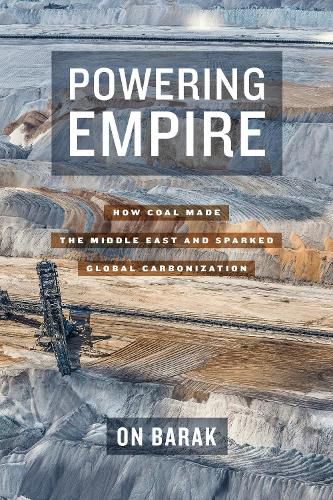Readings Newsletter
Become a Readings Member to make your shopping experience even easier.
Sign in or sign up for free!
You’re not far away from qualifying for FREE standard shipping within Australia
You’ve qualified for FREE standard shipping within Australia
The cart is loading…






The Age of Empire was driven by coal, and the Middle East-as an idea-was made by coal. Coal’s imperial infrastructure presaged the geopolitics of oil that wreaks carnage today, as carbonization threatens our very climate. Powering Empire argues that we cannot promote worldwide decarbonization without first understanding the history of the globalization of carbon energy. How did this black rock come to have such long-lasting power over the world economy?
Focusing on the flow of British carbon energy to the Middle East, On Barak excavates the historic nexus between coal and empire to reveal the political and military motives behind what is conventionally seen as a technological innovation. He provocatively recounts the carbon-intensive entanglements of Western and non-Western powers and reveals unfamiliar resources-such as Islamic risk-aversion and Gandhian vegetarianism-for a climate justice that relies on more diverse and ethical solutions worldwide.
$9.00 standard shipping within Australia
FREE standard shipping within Australia for orders over $100.00
Express & International shipping calculated at checkout
The Age of Empire was driven by coal, and the Middle East-as an idea-was made by coal. Coal’s imperial infrastructure presaged the geopolitics of oil that wreaks carnage today, as carbonization threatens our very climate. Powering Empire argues that we cannot promote worldwide decarbonization without first understanding the history of the globalization of carbon energy. How did this black rock come to have such long-lasting power over the world economy?
Focusing on the flow of British carbon energy to the Middle East, On Barak excavates the historic nexus between coal and empire to reveal the political and military motives behind what is conventionally seen as a technological innovation. He provocatively recounts the carbon-intensive entanglements of Western and non-Western powers and reveals unfamiliar resources-such as Islamic risk-aversion and Gandhian vegetarianism-for a climate justice that relies on more diverse and ethical solutions worldwide.